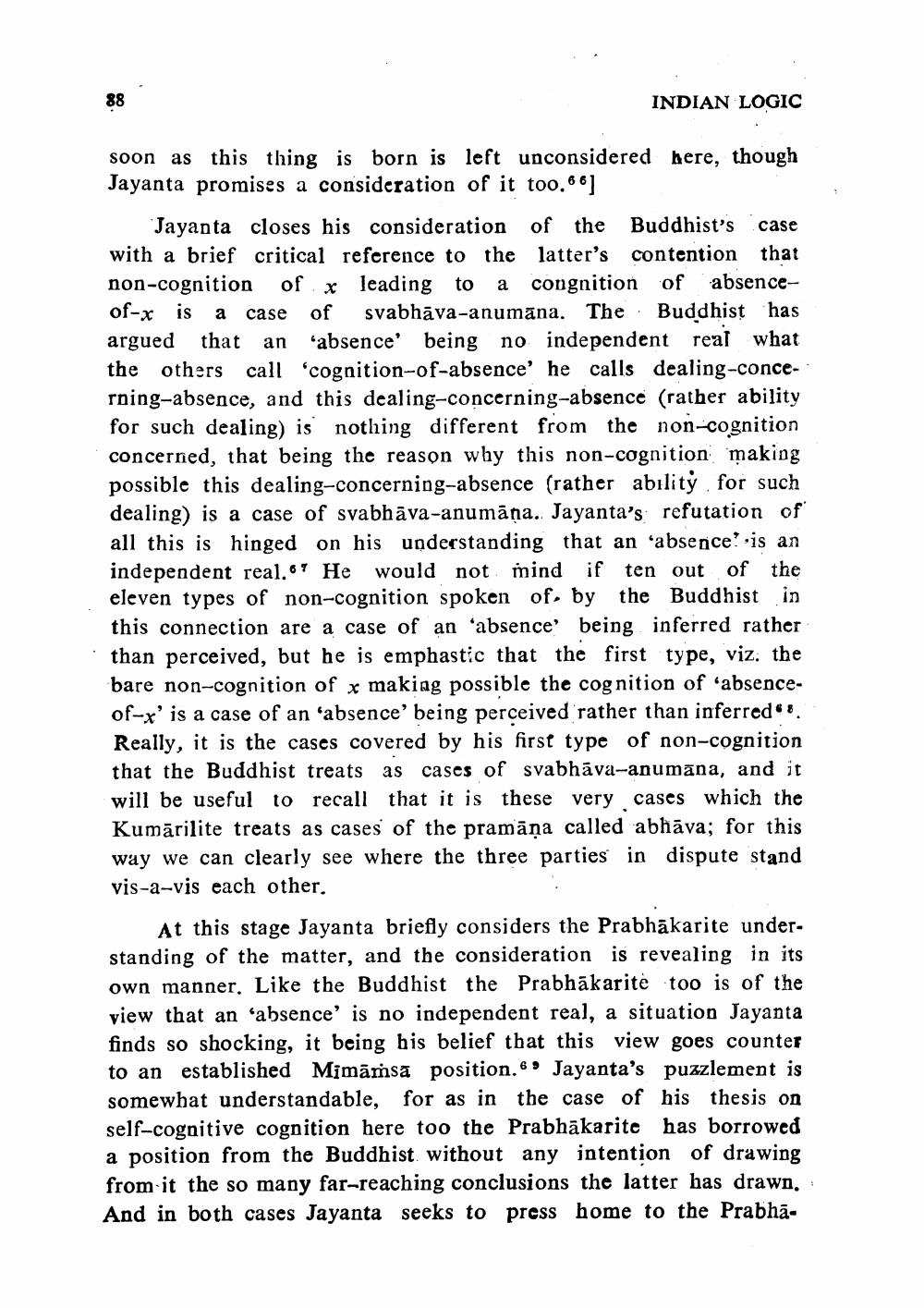________________
02
INDIAN LOGIC
TA
soon as this thing is born is left unconsidered here, though Jayanta promises a consideration of it too.66]
Jayanta closes his consideration of the Buddhist's case with a brief critical reference to the latter's contention that non-cognition of x leading to a congnition of absenceof-x is a case of svabhāva-anumana. The Buddhist has argued that an 'absence' being no independent real what the others call 'cognition-of-absence' he calls dealing-concerning-absence, and this dealing-concerning-absence (rather ability for such dealing) is nothing different from the non-cognition concerned, that being the reason why this non-cognition making possible this dealing-concerning-absence (rather ability for such dealing) is a case of svabhāva-anumāna. Jayanta's refutation of all this is hinged on his understanding that an 'absence is an independent real.c? He would not mind if ten out of the eleven types of non-cognition spoken of. by the Buddhist in this connection are a case of an 'absence being inferred rather than perceived, but he is emphastic that the first type, viz. the bare non-cognition of x making possible the cognition of 'absenceof-x' is a case of an 'absence' being perceived rather than inferred 8. Really, it is the cases covered by his first type of non-cognition that the Buddhist treats as cases of svabhāva-anumana, and it will be useful to recall that it is these very cases which the Kumārilite treats as cases of the pramāna called abhāva; for this way we can clearly see where the three parties in dispute stand vis-a-vis each other.
At this stage Jayanta briefly considers the Prabhākarite understanding of the matter, and the consideration is revealing in its own manner. Like the Buddhist the Prabhākarite too is of the view that an 'absence' is no independent real, a situation Jayanta finds so shocking, it being his belief that this view goes counter to an established Mimāmsa position. 6. Jayanta's puzzlement is somewhat understandable, for as in the case of his thesis on self-cognitive cognition here too the Prabhākarite has borrowed a position from the Buddhist without any intention of drawing from it the so many far-reaching conclusions the latter has drawn.
in both cases Jayanta seeks to press home to the Prabhā.




